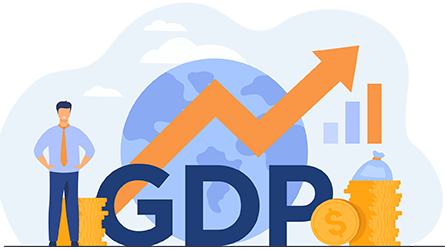Managerial Economics
Course Overview
Faculty : Prof. Naval Kishore Arora
No. of Classes- 20 (90 Minutes each class)
Managerial Economics deals with the application of the economic theory and mathematical economics to solve managerial decisions problems in real world. This course covers application of one major domain of economics—Micro Economics. The application of microeconomics primarily covers demand estimation & forecasting, market analysis &advertisement, and pricing with the study of individuals like a consumer, commodity, a market and a producer.
The course picks up the practical problems of businesses/firms and explores possible managerial solutions. It integrates economic theory with business practice for the purpose of facilitating planning and decision-making.
This course has been designed to deal with present market situations covering a lot of case studies. Students with prior study of economics will find great sense of comfort while undergoing this course.

Course Learning Outcomes
At the end of the course, the students should be able to:-
- Apply the concepts and theories of economics for business decision making
- Use data-based decisions to solve managerial problems

Learning Resources
There is no fixed text book prescribed for this course. The concepts and theories used in the course willhave to be learnt from various sources, including you tube video, online learning platforms, and internet resources. Data will be obtained from various authentic sources and the same will be used for analysis and estimation using Excel.
Student Responsibility
It is the responsibility of every student to be aware of the requirements for this course, and understand the specific details included in this document. It is emphasized that this course requires a significant commitment outside of formal class contact. The learning tasks in this course may include classes (lectures or seminars), required reading, the preparation of answers to set questions, exercises and problems, and self-study. It is advisable that student maintains a separate Note Book for this course which can be used for keeping class notes, library notes, and notes of other readings. It is important to develop the habit of writing notes of classroom discussions and any readings that the students come across.
Late Submission
Assessment tasks submitted after the due date, without prior approval/arrangement, will be not be accepted. Requests for extension of time must be made based on special circumstances and it will be the sole discretion of the instructor whether to provide the extension.
Plagiarism
Plagiarism is looked at as the presentation of the expressed thought or work of another person as though it is one's own without properly acknowledging that person. In case of plagiarism, marks will be deducted or put to zero. It is also advisable that students must not allow other students to copy their work andmust take care to safeguard against this happening. In cases of copying, normally all students involved will be penalized equally; an exception will be if the student can demonstrate the work is their own and they took reasonable care to safeguard against copying.
Session Plan
Each session will be of 90 minutes. There will be a mix of theory and hand-on data based discussion. There will be practice sessions and exercises.
MANAGERIAL ECONOMICS
| Session No. | Topics |
|---|---|
| Class 1 | Managerial Economics: Meaning, Definition, Characteristics, Relation with other disciplines, Importance,Role and Responsibility of A Managerial Economist |
| Class 2 | Same as above |
| Class 3 | Case Study 1 |
| Class 4 | Demand Analysis: Introduction, Meaning and Law of Demand, Elasticity of Demand |
| Class 5 | Same as above |
| Class 6 | Case study 2 |
| Class 7 | Demand Forecasting: Introduction, Meaning and Forecasting, Level of Demand Forecasting, Criteria for Good Demand Forecasting, Methods or Techniques of Demand Forecasting |
| Class 8 | Same as above |
| Class 9 | Supply & Market Equilibrium: Introduction, Meaning of Supply and Law of Supply, Exceptions to the Law of Supply, Changes or Shifts in Supply. Elasticity of supply, Factors Determining Elasticity of Supply, Practical Importance |
| Class 10 | Same as above |
| Class 11 | Production Analysis: Introduction, Meaning of Production and Production Function, Cost of Production |
| Class 12 | Same as above |
| Class 13 | Cost Analysis- Introduction, Types of Costs, Cost-Output Relationship: Cost Function, Cost-Output Relationships in the Short Run, and Cost-Output Relationships in the Long Run. |
| Class 14 | Case study 3 |
| Class 15 | Game theory and Competitive Strategy |
| Class 16 | Same as above |
| Class 17 | Perfect Competition- Introduction, Market and Market Structure, Perfect Competition, Price-Output Determination under Perfect Competition |
| Class 18 | Case study 4 |
| Class 19 | Imperfect Competition- Introduction, Monopoly, Price Discrimination under Monopoly, Bilateral Monopoly, Monopolistic Competition, Oligopoly, Collusive Oligopoly and Price Leadership, Duopoly, Industry Analysis |
| Class 20 | Same as above |
However, students may like to consult following text books to enhance their knowledge of economic principles and their applications:
- JOHN SLOMAN ELIZABETH JONES: Essential economics for business
- DN Dwivedi: Managerial Economics
- JEFFREY M.PERLOFF: Microeconomics
